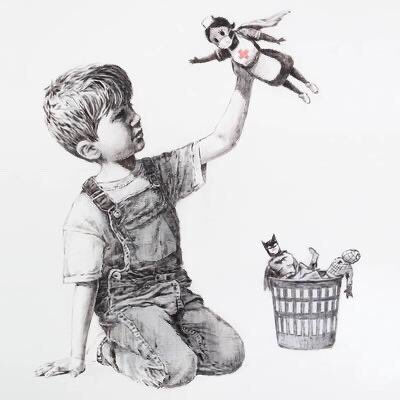Geneva (ICRC) – The 2020 Florence Nightingale Medal pays tribute to nursing staff who put themselves on the line to care for others while working in the most dangerous conditions.
12 May marks 200 years since the birth of Florence Nightingale, who is considered the pioneer of the modern nursing profession. The year 2020 has also been designated as the International Year of the Nurse and the Midwife by the World Health Assembly in Nightingale’s honor.
This year the Commission for the Florence Nightingale Medal is awarding one global collective honorary medal to all nurses and midwives who are deprived of liberty because of their humanitarian work. The prestigious Medal is the highest international honor in nursing. Contrary to the traditional biennial awarding of the medal to outstanding individual nurses, this year’s award is a collective recognition.
“Nurses have been among the heroes of the COVID-19 response. They are the guardian angels of a caring, healthy society. That’s why it is beyond the pale for nurses to be the target of attack or kidnapping because of their medical work,” said Peter Maurer, the President of the International Committee of the Red Cross (ICRC). “The decision to bestow the Florence Nightingale Medal on all nurses in captivity shows our love and appreciation for them, and how fiercely we miss them.
“Despite the numerous calls for the protection of healthworkers in conflict, in line with international humanitarian law, we still see hospitals bombed, health workers attacked and medical supplies cut off from people in need. We call on all parties to conflict to do the utmost to protect healthcare and those who put themselves in danger to help others.”
The Florence Nightingale Medal is typically awarded every two years to nurses in recognition of their exceptional courage and devotion to victims of armed conflict or natural disaster. It also recognizes exemplary service or a pioneering spirit in the areas of public health or nursing education.
“Being a nurse requires an exceptional commitment, whether it is to care for war wounded, to treat those suffering from COVID-19 or to accompany those who are at the end of their lives,” said Jacques Chapuis, chair of the Florence Nightingale Medal Commission. “We express our gratitude to all nurses who work to make the world a healthier place, and this year in particular we pay tribute to those who are deprived of their freedom.”
Born on 12 May 1820, Florence Nightingale broke away from the social conventions of her time to embrace a vocation as a nurse. After attending to wounded soldiers of the Crimean War in the 1850s, she returned to England and dedicated the rest of her life to reforming hospital management, reorganizing the British military medical services and improving the education of nurses. Her visionary writings stress the importance of prevention, hygiene and professional training. Henry Dunant, the founder of the ICRC, was inspired by Florence Nightingale’s writings, as evidenced when Dunant describes his vision of “groups of volunteer nurses” to rescue wounded soldiers in battle.
In honor of Nightingale, the ICRC in 1912 created the Florence Nightingale Medal as suggested by the Council of Delegates during the Eighth International Conference of the Red Cross. The medal, the highest international distinction for nursing professionals, is normally awarded to outstanding nurses presented by National Red Cross or Red Crescent Societies.
For more information or to arrange an interview with ICRC President Peter Maurer, please contact:



Comments